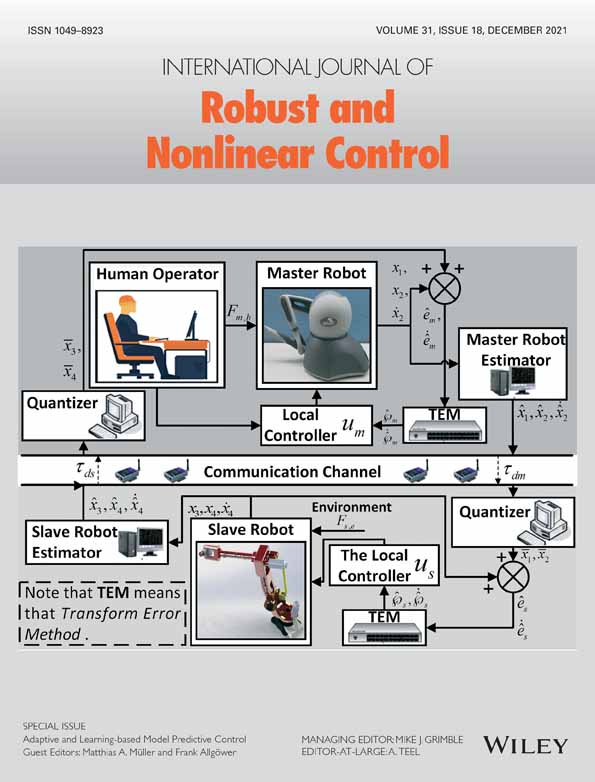Multivariable control based on incomplete models via feedback linearization and continuous-time derivative estimation
Funding information: Schweizerischer Nationalfonds zur Förderung der Wissenschaftlichen Forschung, 184521
Abstract
Models of nonlinear dynamical systems are typically composed of unknown and known parts due to the existence of mismatch between the true nonlinear system dynamics and their models. This article presents a multivariable control strategy for nonlinear systems that deals explicitly with the existence of incomplete models in a data-driven framework. The proposed strategy uses feedback linearization and continuous-time estimation of the unknown derivatives to achieve satisfactory closed-loop performance for fast sampling applications with simple tuning of design parameters in the absence of a fully known system model. It is shown that this strategy possesses useful steady-state properties, such as elimination of steady-state error and rejection of constant input disturbances without any integral term, and ensures exponential convergence to the setpoints. Another contribution of this article is the development of methods for quantitative analysis of the stability and performance of the control strategy in the continuous-time case. The approach is illustrated via a simulated example of reactor control. The proposed control strategy is broadly applicable and simplifies control design significantly for a large variety of systems.
CONFLICT OF INTEREST
The authors declare no potential conflict of interests.
Open Research
DATA AVAILABILITY STATEMENT
The data that support the findings of this study are openly available in Github at https://github.com/dfmrodrigues/SNSF-project-P2ELP2_184521.




